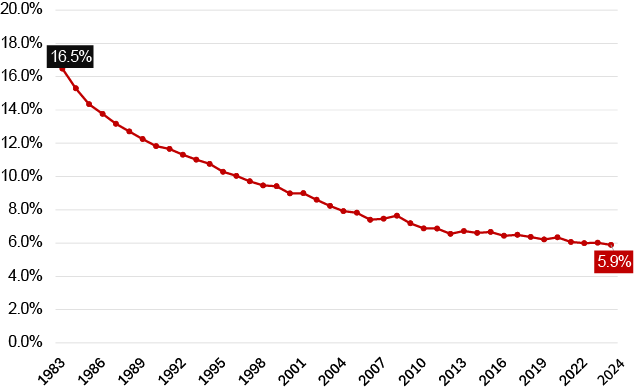When deciding whether or not to support a union at JPL, you should understand how unions operate and what a union can and cannot do.
- A union operates like a business; its main source of money comes from dues, fees, and assessments paid by employees represented by the union. These funds may be withheld directly from employee paychecks.
- The more employees a union represents, the more membership dues and fees the union can collect. Therefore, unions have a vested interest in organizing more employees.
- Most private sector employees are not represented by a union. More than 90% of private sector workers have a direct working relationship with their employers and can discuss their pay and benefits and collaborate with their employer about changes and improvements without paying a union to represent them.
Union Membership
(Private Sector)

Unions Can
- Charge their members dues, impose fees, and level fines and assessments on their members, even those who voted against the union or those who did not vote
- Determine which issues to prioritize in contract negotiations with the employer
- Make proposals as part of the negotiations process on behalf of their members, although the employer has no obligation to agree with the union’s proposals
- Decide to act, or refuse to act, on a member’s grievance
- Represent all employees in the bargaining unit, even those who voted against the union or those who did not vote
- Require members to engage in a strike or work stoppage
- Discipline, issue penalties, or fine members who violate union bylaws
Unions Cannot
- Guarantee specific terms of employment, like higher wages, better benefits, or a fixed, flexible, or remote work schedule
- Prevent layoffs
- Guarantee that an employer will enter into a contract with the union
- Guarantee employment
- Prevent termination for just cause
- Unilaterally establish job standards
- Fire or transfer managers
